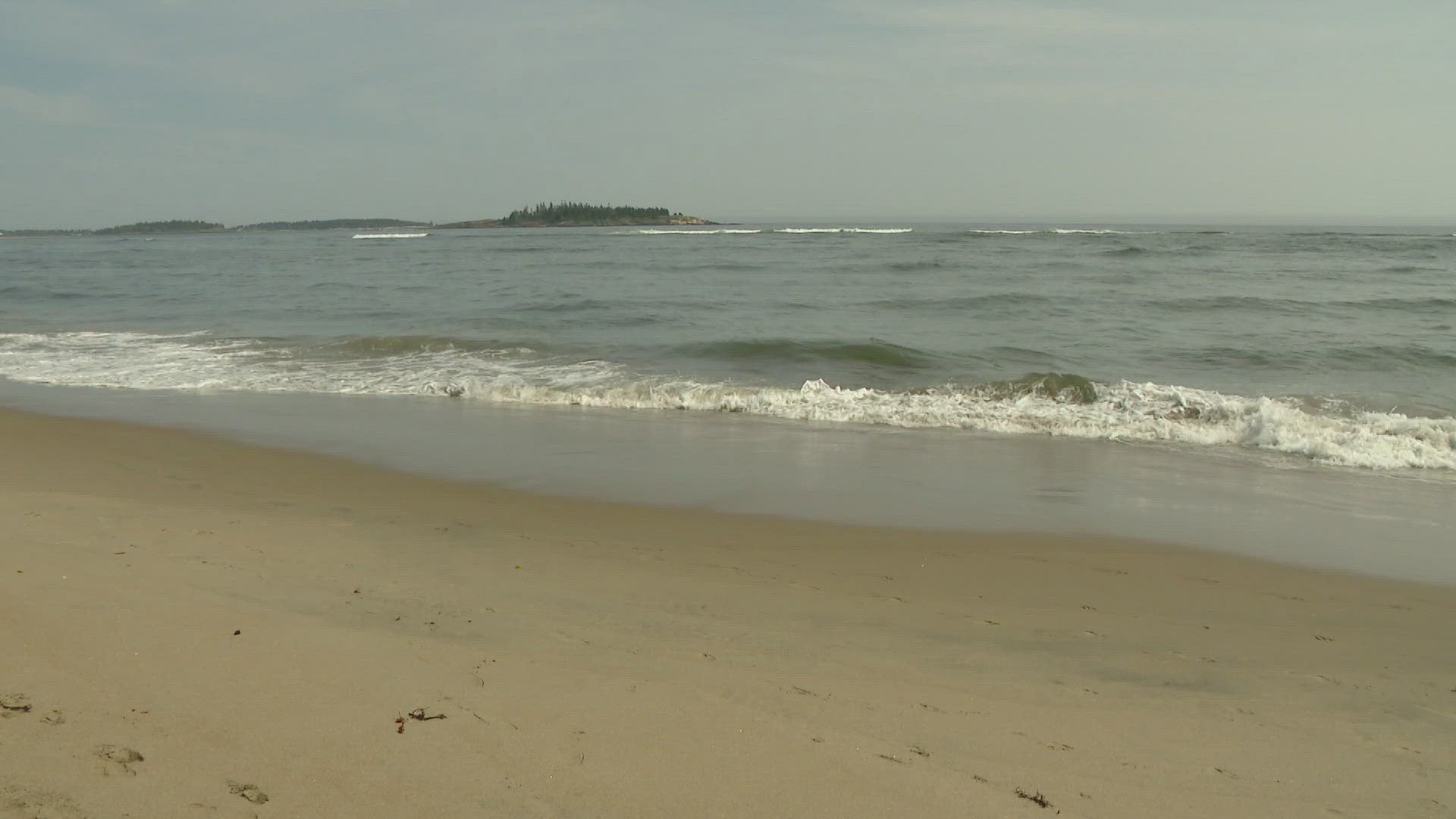WISCASSET, Maine — A yearslong battle over private beachfront property is coming to an end in a Lincoln County courtroom.
Over the past two days, a judge heard arguments from lawyers representing two families: the Hills and the Tappens.
The Hills have long said they and their neighbors have the right to share a portion of beach in front of their homes. Now, the Tappens are suing them over those claims, saying they are the rightful owner of that beach and should be the only ones able to use it.
Benjamin Ford, representing the Hills, said they have history on their side.
"It's about this family fighting for the right to use a beach they've used for 125 years," Ford said.
The properties sit on a stretch of private beach just northeast of Popham Beach State Park. The Hills' home is separated from their neighbors, the Tappens, by about 3 acres of land owned by the Tappens. That land includes a path to the beach, which the Hills say they and people who rent cabins they own behind their property should still be allowed to use, as they always have been.
"If you buy a house in a subdivision, and there's a map, and it says there's a park here, most people understand if you own the house in the subdivision, you can use the park," Ford said.
However, Glenn Israel, who represents the Tappens, said some parts of that history paint a different picture.
During testimony, Israel brought up a time when all property owners were facing a tax increase, and Dick Hill allegedly sent his neighbors a letter offering to relieve them of that burden by purchasing the private beach.
When Hill was on the witness stand, Israel asked, "The subject of the 1981 letter is what you're now claiming is common area?"
"That's right," Hill responded.
Israel said ownership plays a key role in the case. He cited a 2021 deed, which he believes his client actually purchased those exact sections of private beach, giving the Tappens the right to restrict access.
"It's a deed for some unallocated land in the subdivision," Israel said, referring to the parts the Hills claim as common area.
On the other hand, Ford said the deed was a "release deed," which he argued makes it invalid.
"Release deed is something like saying, 'I don't know if I own this or not, but I'm selling it to you,'" Ford said.
Ford said the woman the Tappens bought the deed from never had a true claim to that land in the first place.
"For example, I could sell you the Brooklyn Bridge right now, and I could give you a release deed for it," Ford added.
Ford said there's a lot at stake for the Hill family, who could be restricted from using the beach land directly in front of their home if the Tappens win.
"What's the point of a beach if you can't use the water? What's the point of a beach if you can't sit down? What's the point of a beach if you can't have your kids build sandcastles?" Ford said.
Yet, Israel said the Tappens are simply fighting for their right to enjoy the land they paid for.
"There's always been an unwritten rule that you sit in front of your own cottage, and you don't bother your neighbors. That rule, as of late, has been violated by people who are renting cottages owned by the Hills," Israel said.
Whether that violation is true is now for a judge to decide. The trial wrapped up after lawyers issued closing statements on Tuesday. They don't expect the judge to issue a decision for a few weeks.

